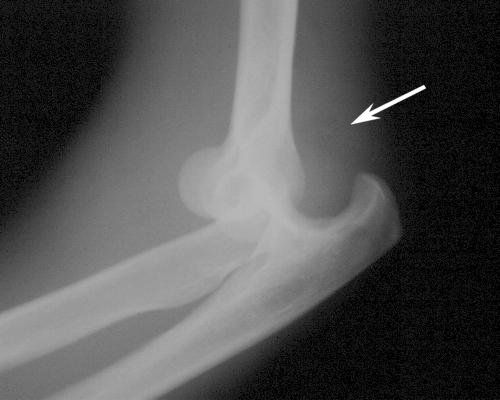|
Elbow Joint Facts
- It is a ginglymus joint.
- The elbow joint is made up of the ulna, radius, and the humerus.
- The joint surface is covered by cartilage for protection.
- Two motions that allow the joint to move are pronation and supination.
- This joint is surrounded by supporting ligaments and muscles.
COMMON INJURIES OF THE ELBOW:
Elbow dislocation, elbow fracture, and tendinitis.
Elbow Injuries
--Elbow Dislocation--
~This results from falling on an outstretched or extended arm, most commonly
as a result of a contact sport or fall from a height. The patient experiences an immediate loss of range of motion in combination
with acute pain over the elbow surface.
--Elbow Fracture--
~Fractures of the elbow also cause acute pain, swelling, bruising and potential
joint deformity. Elbow fractures need to be recognized and treated early to minimize long term complications such as loss
of elbow range of motion and chronic stiffness.
--Tendinitis--
~There are three main forms of tendinitis, inflammation of a tendon, encountered
in the elbow. Each condition is usually the result of repetitive motion injuries to the elbow joint.

|
| ELBOW DISLOCATION |

|
| ELBOW FRACTURE |

|
| TENDONITIS |
Preventing Elbow Injuries
- DON'T FALL ON YOUR ARM WHEN IT IS OUTSTRETCHED OR EXTENDED!
- IF YOU ARE PLAYING A SPORT, STRETCH!
- BE AWARE OF YOUR SURROUNDINGS AND DON'T BE IN A SITUATION WHERE SOMETHING COULD HAPPEN!

What allows our skeleton friend here to
move his elbows are two actions known as PRONATION and SUPINATION.
PRONATION - when you turn your palm down
SUPINATION - when you turn your palm up

Dang! Sweet!
|




